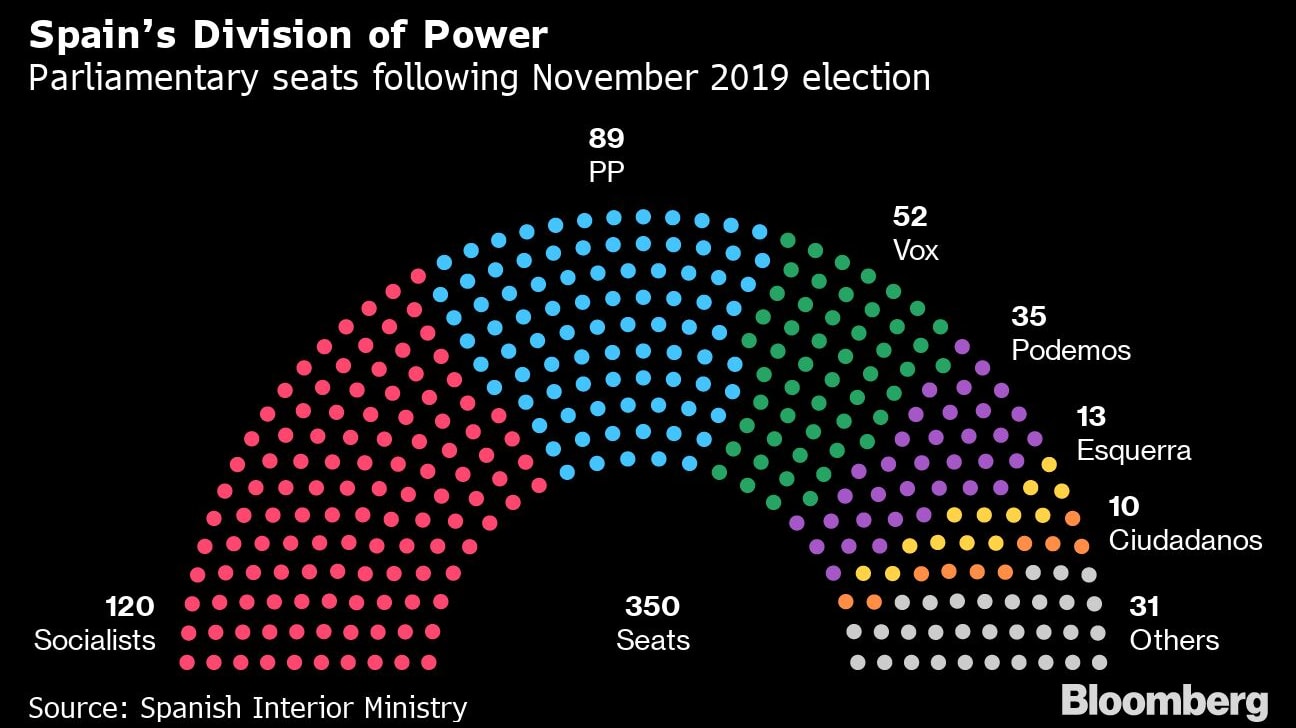
(Bloomberg) -- Spain’s two largest startups, both eyeing initial public offerings, are bracing for the arrival of an anti-establishment party in the next government.
Ride-hailing service Cabify and food delivery service Glovo have grown with the gig economy, a favorite punching bag for Podemos, which could be the junior partner in Spain’s next administration. Both companies are concerned about what the make-up of the government could mean for their businesses, according to people familiar with the matter.
Podemos backed taxi drivers in their fights against Cabify and similar services such as Uber Technologies Inc. in 2018 and early 2019. And in June, party leader Pablo Iglesias, who’s likely to become deputy prime minister, issued a public letter to Cabify founder Juan de Antonio criticizing the company’s tax and labor practices.
Based in Madrid and valued at over 1 billion euros ($1.1 billion), Cabify is Spain’s only so-called unicorn. Glovo is set to become the second when it completes its next funding round, according to people familiar with the matter.
The Socialists and Podemos announced last week they’d work together to form a coalition government in an attempt to end four years without a stable administration, though they still need additional support to form a majority. The Socialists won 120 seats in the Nov. 9 election, making them the largest party in the fragmented 350-member parliament.
According to local news reports over the weekend, Podemos will be granted control of the labor ministry. The party, in its electoral platform, said it would fight what it called the “fraud of false freelancers,” citing a recent ruling by a Madrid court that couriers for Glovo rival Deliveroo are employees, which paved the way for them to demand formal contracts and benefits.
Glovo has lost similar lawsuits and its business strategy already takes into account several potential changes to labor rules, including a “worse-case scenario” that would require it to put all Spanish workers on the payroll, according to one person.
The company is now seeking to reach out to politicians to make a case for more flexible labor regulations, according to people familiar with the matter. As part of these attempts, Chief Executive Officer and founder Oscar Pierre met with Ivan Redondo, acting Prime Minister Pedro Sanchez’s powerful cabinet chief, three people familiar with the meeting said.
Read more: Who Should Be Afraid of Podemos in Spain and Who Can Just Relax
For its part, Cabify has struggled to make similar inroads among politicians in the Socialist administration or to meet with Podemos leaders. Executives at the start-up have reached out to third parties -- including at least one major U.S. technology company -- for help brokering a deal with Redondo, but he declined to meet, according to a person familiar with the attempts.
Press officers for both Cabify and Glovo declined to comment.
Concern at both companies is slightly tempered by the fact that Podemos seems to have mellowed its stance toward their industries in recent months as it appeared to refocus on other topics, the people said. And for now, just having a stable government will offer a respite, one of the people said.
--With assistance from Jeannette Neumann.
To contact the reporter on this story: Rodrigo Orihuela in Madrid at rorihuela@bloomberg.net
To contact the editors responsible for this story: Ben Sills at bsills@bloomberg.net, Caroline Alexander
For more articles like this, please visit us at bloomberg.com
©2019 Bloomberg L.P.